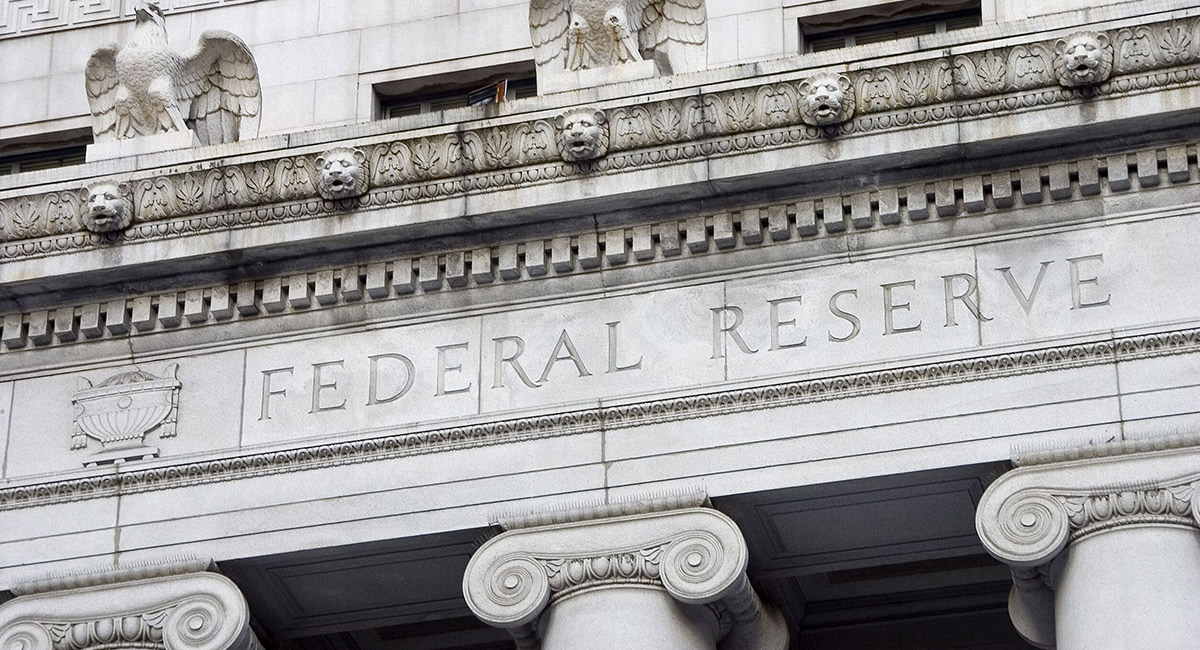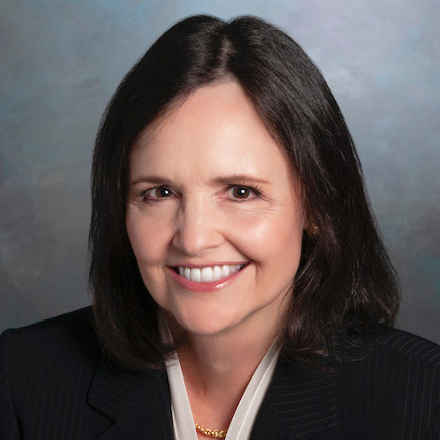How is America’s next president going to fix the problems that have plagued our economy since the 2008 global financial meltdown? Anemic growth and declining productivity reflect an economy where people make more money trading financial assets than actually making things. Worsening income inequality has fed into “Wall Street vs. Main Street” class resentment and spawned a growing backlash against foreign trade.
Monetary policy played a major role in that last global crisis, which raises the question: Shouldn’t we be focusing on what the candidates have to say about our Federal Reserve? Don’t voters deserve to know what GOP nominee Donald Trump or Democratic nominee Hillary Clinton would do—if anything—to change the way money is managed by our nation’s central bank?
Trump has been unusually open about his views, publicly noting in interviews and speeches that the extremely low interest-rate policies of the Fed these past eight years may have embedded distortions in credit markets that will cause future problems. As a builder, he confesses that he likes low rates; access to cheap financing is a plus for developers. But he is also worried about financial stability and its potential impact on the nation’s economy. Trump is concerned that “we’re creating a bubble.”
Members of the Fed’s policymaking committee are wrestling with that very same dilemma—which suggests that Trump’s observations deserve to be seen as well-informed and highly relevant.
At the same time, Trump risks being considered out of line for saying so. Why? Because providing thoughtful comments on monetary policy sets up a presidential candidate to be pummeled for “politicizing” the Fed. Even though monetary authority constitutionally rests with Congress, it is somehow considered improper to second-guess the wisdom of our nation’s central bank, which describes itself as an “independent government agency” on its website.
Yet wouldn’t it actually be helpful for voters to know what the two leading candidates think about the decisions that have so strongly affected their own economic well-being? The Fed’s dominance over banking and the availability of credit plays a key role in determining economic performance—if it doesn’t, why do we grant Fed officials such autonomy and discretion to direct trillions in financing?
So what does Clinton think about the relationship between interest rates, business investment and employment? Does she believe the Fed’s policies have been successful in stimulating real growth?
Debating the efficacy of monetary policy decisions is not everyone’s idea of a scintillating subject—but that needs to change. Voters should become far more attentive to the outsized effect of the Fed in determining the cost of borrowing, which functions as the pivotal variable for increasing wage growth while simultaneously preventing excessive inflation.
It is high time that we pierce the veil on monetary policy decisions. Presidential candidates should feel free to openly question whether the Fed’s actions are aiding economic recovery or making things worse—and even to ask if the economy would function better if central bankers were less influential in managing financial market outcomes.
When Janet Yellen, the chair of the Federal Reserve, hints at the timing and magnitude of future interest rate movements, the world pays close attention. Financial analysts and hedge fund managers parse her nuanced statements for all they’re worth—which is a lot. Trillions in derivatives contracts are linked to the differential interest rate policies among the world’s central banks and the associated impact on currencies. For the world’s wealthiest investors, guessing right about the Fed’s next move pays off big time.
But what about the vast majority of Americans who don’t hold large stock portfolios? They are likewise affected by the pronouncements of monetary authorities, even though their own wealth prospects are hardly improving. They deserve to know: Has the Fed’s monetary experiment of keeping interest rates suppressed to near-zero levels actually succeeded in lifting wages? Low-cost financing was supposed to encourage companies to invest in new plant and equipment, which in turn would spur demand for workers. Even if we accept that it takes time to deliver the desired outcome of expanded production and higher labor demand, how much longer are we supposed to wait for salaries to increase?
It matters because, in the meantime, ordinary savers have had to accept much lower rates of return on their bank savings accounts. And while it may true that banks and brokerage houses have been plenty willing to lend at extraordinarily low rates to affluent individuals—through jumbo mortgages (over $400,000) and margin accounts—it doesn’t mean the average small-business applicant has benefited from low interest rates since the 2008 financial crisis. Small-business lending has decreased as a percentage of all bank loans from 51 percent in 1995 to 29 percent in 2012.
What do the presidential candidates have to say about that? Whatever one thinks of the Republican presidential candidate, he has demonstrated the ability to connect monetary policy to real lives. “The problem with low interest rates is that it’s unfair that people who’ve saved every penny, paid off mortgages, and everything they were supposed to do and they were going to retire with their beautiful nest egg, and now they’re getting one-eighth of 1 percent,” Trump told Fortune in April. “I think that’s unfair to those people.”
What about the Democratic presidential candidate? Clinton has so far stuck to the tradition of not commenting on monetary policy. She won’t say whether the Fed’s model seems to be accomplishing its goals or whether its inherent tradeoffs are fair. Instead, she has taken up the cause of “increasing diversity” at the U.S. central bank. According to Clinton campaign spokesman Jesse Ferguson: “Secretary Clinton believes that the Fed needs to be more representative of America as a whole.”
This position aligns with the Clinton campaign’s support for a letter sent to Yellen by Sen. Elizabeth Warren (D-Mass.) and Rep. John Conyers (D-Mich.) in May that argued: “When the voices of women, African-Americans, Latinos, Asian Pacific Americans, and representatives of consumers and labor are excluded from key discussions, their interests are too often neglected.”
Really—that’s it? Nothing about the need to reassess the role of central banking in the context of economic performance? Nothing about questioning the analytical assumptions embedded in a monetary decision-making model that does not appear to be working? Since when does race, gender or ethnicity determine the quality of intellectual effort brought to bear on fundamental monetary policy questions?
Clinton also believes that bankers should be removed from the boards of regional Federal Reserve banks. But is that because she thinks these individuals are deliberately working at cross-purposes with the economic interests of the nation as a whole? What are they missing in their monetary policy deliberations that non-bankers would pick up? And why does Yellen agree with them—versus having a “woman’s” perspective on these matters?
How sad—pathetic, actually—to see an accomplished politician push the notion that gender somehow alters how an individual thinks or affects the level of competence brought to the most challenging intellectual tasks affecting the future of our nation and the world. Why should someone’s race or ethnicity matter in assessing whether perpetually low interest rates are helping or hurting the economy? What kind of stereotyping comes into play by calling for diversity at the Fed rather than demanding institutional accountability as the price for retaining sovereign authority in deciding monetary policy questions?
Let’s hope the coming presidential debates will not allow candidates to duck the hard questions by resorting to such nonsense. Both Donald Trump and Hillary Clinton need to express opinions—strong ones—about what kind of job the Fed is doing in managing our nation’s money.









